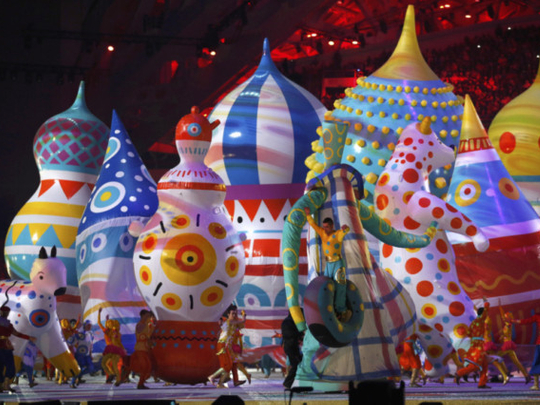
We’re all in the persuasion business. We call it marketing. And storytelling is how we ply our trade.
It really doesn’t matter the medium of choice, compelling storytelling, or the lack of it, can make or break a campaign. And in my world of ceremonies and public events (once-in-a-generation opportunities to host the Olympic, Asian, Commonwealth or any other games, tournament or expo) the impact of good or bad storytelling can often be gauged even as the action unfolds.
But what is good storytelling? These are some of the rules I’ve learnt while working with my teams to create great ceremonies. I’m pretty certain they apply to all of us, whether our brands are nations and cities or products and services.
Have something to say
When the world tunes in to hear what you have to say, what are you going say? It’s amazing how many storytellers fail to answer this question. In my view, the biggest spenders on recent ceremonies have achieved little more than a reaffirmation of what we already knew.
The biggest? The most expensive? The most technologically ambitious? Perhaps. But thrilling as it all might seem for a moment or two, they are ultimately unsatisfying and sadly impotent. Nothing changes. Why spend a fortune to stay exactly where you are?
Make me care
There are two things we are hard-wired to care about — people and story — so start there. And the best storytellers aren’t always the heroes in their own story. They make mistakes, just like us.
But their imperfections make them real. And that’s what makes us care.
Know who you are talking to — and involve them
Ceremonies are a unique opportunity to engage the world, but it’s shocking how often this opportunity is squandered. The Beijing and Sochi ceremonies, for example, were spectacular but they actually gave the rest of the world no real insight into their people or their culture that couldn’t be found online.
Nor did they particularly care to invite us in. They weren’t for us. Why host these global events if you aren’t going to talk to the rest of the world?
Be sincere
The fact is, we are a cynical bunch these days. We’ve all been exposed to far too many bad, manipulative and exploitative stories. We can smell insincerity and propaganda a mile off.
Faking it doesn’t work anymore — not in any medium. They’ll sniff you out, catch you out, call you out.
Be bravely authentic.
It sounds obvious, but be who you are — and be proud of who you are, warts and all. A bit of vulnerability is attractive. Again, it invites us in.
Be generous
Event hosts can be horribly preoccupied with themselves. How appealing is it to go out on a date with someone who won’t shut up about themselves? The best dates are interested in you. Don’t give people an excuse to root against you.
Stop taking yourself so seriously
While working in Beijing as a consultant to the Games, I kept asking, “What would it be like if you shared a smile with the world?” That would have connected us — we would have shared a moment, rather than witnessed a moment.
All storytelling is a wonderful opportunity to surprise the audience. To say, “Hey guess what, we’re just like you”. To be honest, what it boils down to is this — just make people part of your (brand) story. As Steinbeck said, “A great and interesting story is about everyone or it will not last”.
The writer is director of public events at Jack Morton Worldwide.











